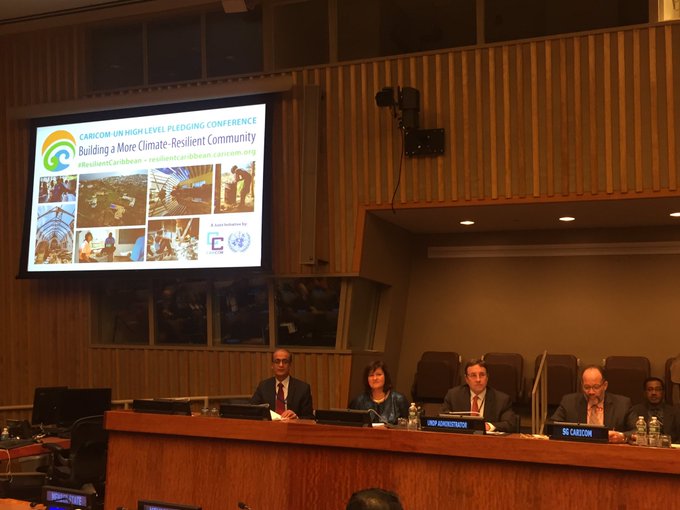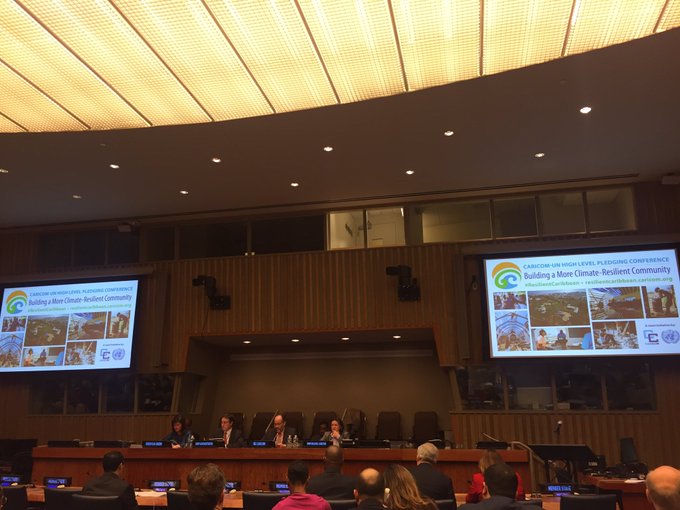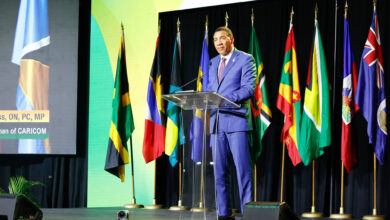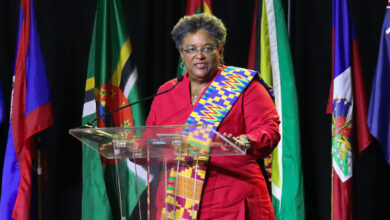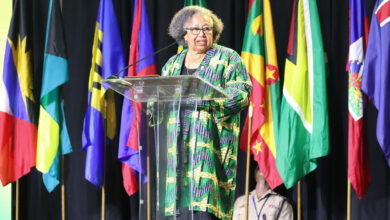Secretary-General of CARICOM, Ambassador Irwin LaRocque, said that intention was in “full knowledge that we are into a new era,” when hurricanes had now become “game changers.”
He was at the time speaking at the opening of Technical Consultations at the CARICOM-UN High Level Pledging Conference, earlier this morning (20 November) at the United Nations Headquarters in New York.
The CARICOM-UN High Level Pledging Conference is to mobilise national governments, regional organisations, international development partners, private sector, and civil society to support the construction of what can become the world’s first hurricane-resilient countries.
See more information here
Reminding the stakeholders of the hurricane devastation, Secretary-General LaRocque said two category five hurricanes in two weeks and one, Maria, going from a category 1 to a category 5 in less than 36 hours, was a signal of a dangerous change in the intensity and frequency of climate events.
“The Region must therefore adapt to this reality. Time is not on our side. The next hurricane season is seven months away,” he stated.
He reminded that the Parties to the United Nations Framework Convention on Climate Change, at their 21st Meeting (COP21) in Paris, December 2015, agreed to “hold the increase in the global average temperature to well below 2° C above pre-industrial levels and pursue efforts to limit the temperature increase to 1.5° C.”
September’s hurricanes have proven that 1.5 is critical to Small Island and low-lying coastal Developing States (SIDS) which are highly vulnerable to climatic hazards.
He said that since the Paris Agreement Caribbean scientists have carried out studies to explore the consequences of both a 1.5 and 2.0 degree Centigrade warmer world.
“They have found that given the current trend, the 1.5° C target will occur within the next decade, much sooner than previously anticipated. With 1.5° C , the scientists are predicting generally harsher climatic conditions for our Region.”
Emphasising the urgency of resilient reconstruction he said: “We must prepare for the next catastrophic hurricane, flood or drought. We must therefore be climate-resilient in time for the next event.”
He said the Community had been taking steps to embed resilience in its planning with the Caribbean Disaster Emergency Management Agency (CDEMA)-led Comprehensive Disaster Management (CDM) Strategy 2014-2024, to continue its role as the Caribbean’s platform for achieving risk resilience.
The strategy embraces key sectors such as Agriculture, Tourism, Health, Education, Finance, and Physical and Environmental Planning. Additionally, it places increased focus on harmonising disaster risk reduction and climate change considerations.
However, he noted that it was obvious that given the new normal, much more needed to be done.
The Secretary-General lauded the Governments and People of the Caribbean Community and its Institutions, whom he noted “have stood up to be counted in assisting the affected states.”
He added that the Community was eternally grateful to the International Community for “rendering tremendous support,” including the UNDP for its invaluable support to the CARICOM-UNDP Pledging Conference.


